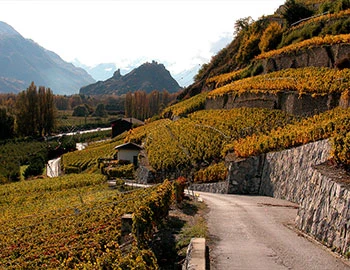
Ligne Prestige Brut Rosé
Charles Rolaz (La Roche aux Fées SA), 750 ml

| Grape variety: | Chardonnay, Pinot noir, Doral |
| Producer: | Charles Rolaz |
| Origin: | Switzerland / Waadt |
Description
The Ligne Prestige is created especially with and for Baur au Lac Vins! Inspiring, uncomplicated and yet full of finesse! The grapes for this aromatic cuvée come from the sun-drenched vineyards high above Lake Geneva. Chardonnay, Doral and a little Pinot Noir are vinified into a base wine and a still wine, before undergoing a second fermentation in the bottle and maturing for several years to develop into a wonderful "Vins Mousseux". A fine, inviting, floral bouquet and ripe red forest berries beguile the nose. The palate reveals a fine, tart flavour with a strong perlage and an animating, juicy acidity. A rosé sparkling wine made for a cosy get-together on the garden terrace, on the balcony or at a festive table.
Attributes
| Origin: | Switzerland / Waadt |
| Grape variety: | Chardonnay, Pinot noir, Doral |
| Ripening potential: | 1 to 6 years |
| Drinking temperature: | 8 to 10 °C |
| Food Pairing: | Apéro pastries, Apéro riche |
| Vinification: | bottle fermentation |
| Harvest: | hand-picking, strict selection |
| Maturation: | on the yeast, long cultivation |
| Maturation duration: | 24 months |
| Volume: | 12.5 % |
| Note: | Contains sulphites |
Pinot noir
Blueprint of the terroir
No other variety expresses its terroir as precisely as Pinot noir. It is a sensitive, fragile grape. But when it succeeds, it gives the world some of its very greatest wine plants. It especially excels in Burgundy, where it has been cultivated for at least 700 years. Even in the middle ages, it was considered so precious that it was kept separate from other grapes so as to not diminish its value. The finest examples are delicate and fragrant with aromas of cherries and red berries. With maturity, notes of forest floor, leather and truffles enter as well. An irresistible fruity sweetness still shines through, even after several decades. The Pinot noir does well in cool locations: in Switzerland and in Germany, where it is known as Blauburgunder and Spätburgunder respectively; in Alsace and in South Tyrol, in Oregon, New Zealand and Tasmania. Not least, it yields fantastic champagnes. It is a wonderful culinary companion. With its soft tannins and charming bouquet, it meshes with everything, from Güggeli and cheeses to fried fish.
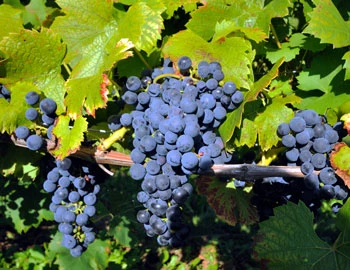
Doral
Swiss grape variety: Aromatic cross between Chasselas and Chardonnay
Doral is a new variety developed by Agroscope in Pully (Switzerland). It was created in 1965 from the varieties Chasselas and Chardonnay. The aim was to create a variety that is more aromatic and sugary than Chasselas. Grown exclusively in Switzerland, this early-ripening, high-yielding grape variety, which is susceptible to raw rot, produces fresh and aromatic wines characterised by notes of tropical fruit.
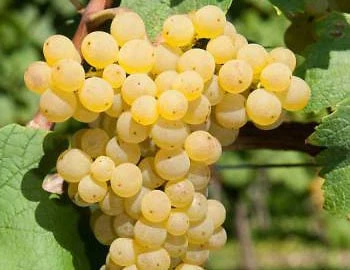
Chardonnay
King or beggar?
Hardly any variety of vine shows such a broad spectrum of quality as the Chardonnay. Its wines range from faceless neutrality to breath-taking class. It is an extremely low-maintenance vine, which explains why it is grown around the world – even in places where it probably should not be. The aromas of the Chardonnay variety are not very pronounced: a bit of green apple, a little hazelnut; in warmer latitudes, also melon and exotic fruits. The wines are often defined by maturing in casks. They develop more or less subtle notes of butter, toasted bread and vanilla. The grapes achieve their highest expression in their region of origin, Burgundy. Its heart beats in the Côte de Beaune: one might think of the plant growth of Meursault or Puligny-Montrachet. With their finesse and complexity, they can survive for decades. Chardonnay also achieves first class in some Blanc-de-Blancs champagnes. It additionally yields great wines in the Burgundian Chablis, and increasingly in Australia and Chile. A simple rule of thumb for pairing with food: When butter and cream are involved, you cannot go wrong with Chardonnay.
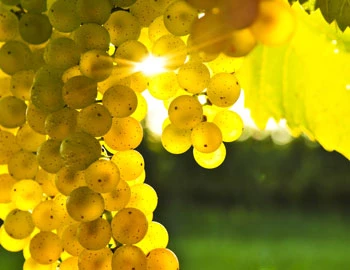
Waadt
Vaud: stronghold of the Chasselas
Vintners of Vaud have almost stubbornly maintained their loyalty to their preferred variety, Chasselas. This is now paying off, as white wines with moderate alcohol content are experiencing a renaissance. And vintners today interpret the lightness of Chasselas in their own individual ways. Over 100 chateaux produce wine here. By contrast, the wine villages fascinate with rural charm. It is these contrasts that make this winegrowing canton an exciting destination for wine tourism.
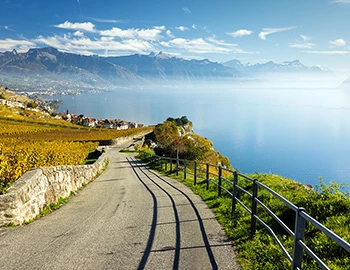
Switzerland
Switzerland – A small country with enormous diversity
Switzerland is famous for its banks, watches, and cheese, but not necessarily for its wine. The Swiss didn't invent wine, but they have been extremely open and curious to it. Wine culture arrived in what is now modern Switzerland via several routes: from Marseilles to Lake Geneva and the Lower Valais region; from the Aosta Valley through the Great St. Bernard Pass to the rest of Valais; from the Rhone through Burgundy, across the Jura Mountains to Lake Constance; and from Lombardy to Ticino, and then on to Grisons.
